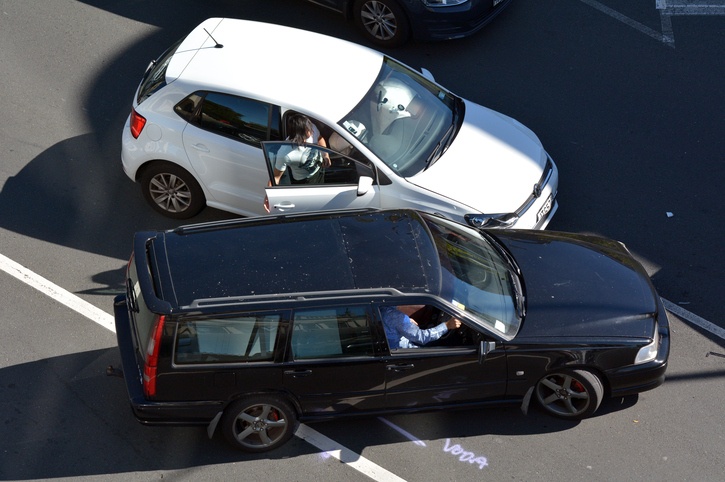Dangerous driving behaviours that fleets often overlook

Imagine a fleet that’s hardly ever plagued by collisions or downtime. Drivers who consistently perform well and drive safely. And a healthy budget free of sudden accident costs.
This fleet can be yours if your drivers avoid some common distractions behind the wheel.
For the sake of your drivers’ safety, it’s essential to know and communicate all the distracted driving behaviours - especially the less obvious behaviours that are easily overlooked. Doing this is a part of good accident management, and will help ensure your employees are protected and fewer incidents happen.
In this blog, we share some major driving distractions that are usually dismissed... and which your fleet drivers must avoid.
Want to learn more about accident management and why it is important? Find out here.
What is distracted driving?
Distracted driving can be defined as anything that takes a driver’s attention off the road, even temporarily. Visual distractions divert a driver’s eyes from the road, physical items such as food or mobile phones make drivers take a hand off the steering wheel, and mental distractions take a driver’s mind off his or her immediate surroundings.
By driving in a distracted state, accident risk goes up drastically. You are less aware of other motorists and road conditions, and less able to drive defensively. Dangerous and deadly collisions happen with just a few seconds of lost focus.
Is outsourcing accident management right for your business? Take our Accident Management Quiz to find out today.
For all these reasons, it’s key to warn fleet drivers about the following risks:
1. Hands-free technology
The dangers of texting or manually making phone calls while driving are highly publicised. But even hands-free technology puts drivers at real risk.
Making vocal commands to mobile phones and other devices can distract drivers after the commands are made. Even if the hands-free tech is built into the vehicle dashboard, fleet drivers should try to avoid using it to concentrate fully on the road.
2. Music
Loud music breaks concentration and can lead to critical driving errors. If you allow your fleet drivers to use the radio at all, it should remain at low volumes only.
Manually changing radio stations can also lead to unsafe driving. Drivers should pre-set radios before going out to avoid manually adjusting stations or volume while steering. They may also wish to have set playlists in their phone so they don't have to worry about changing the station when they're out of range or when a bad song comes on. However, if they're going to use their phone this way, it will be important for them to put the playlist on and then stow the phone where it won't distract them.
3. Mood
Negative emotions such as anger, anxiety, and sadness directly contribute to accident risk. Fleet drivers should be encouraged to take advantage of scheduled breaks, and to use relaxation techniques such as deep breathing when stressed.
Another way to reduce stress among fleet drivers is to lay out the shortest possible journeys for them, avoiding routes with ongoing construction or heavy traffic as much as possible.
4. Eating
Eating and drinking requires taking at least one hand off the wheel, and can quickly lead to a crash. Spills only compound the distraction, making it harder to steer and watch the road.
Fleet drivers should be instructed to never eat while driving and given enough time for rest stops, especially on longer journeys.
5. Using the phone
While phones are a well-known distraction, it bears repeating: operating a mobile device behind the wheel is extremely unsafe.
Whether the driver holds the phone in one hand or quickly touches the screen to make a call, mobile phones reduce mental focus and inhibit the skills of the most experienced drivers. Strongly consider binding your fleet drivers to a policy prohibiting all mobile device usage unless parked.
Even capable, confident fleet drivers are vulnerable to these common distractions. And it can be hard to personally make sure drivers are avoiding these hazards.
For this reason, make your next step a smart one and outsource. SurePlan are experts in accident management and can help ensure your drivers are staying safe — reducing the chances of incidents, injuries, and huge costs for a more stable, more profitable fleet.
Topics: Accident Management








